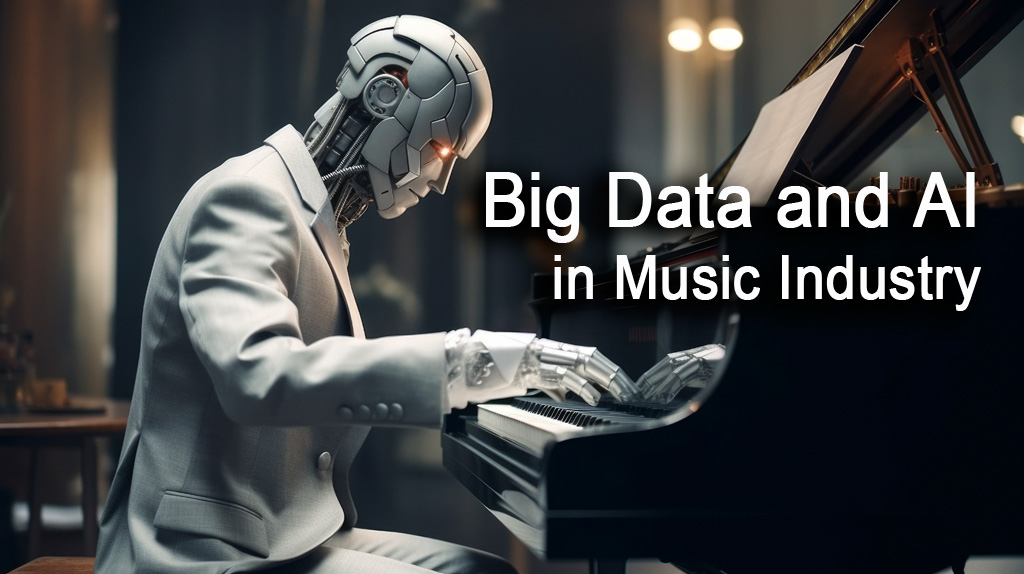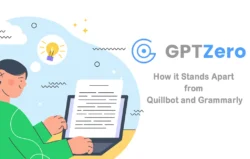The music industry is undergoing a profound transformation driven by the integration of big data and artificial intelligence (AI). These technologies are reshaping how music is created, distributed, and consumed, while also addressing one of the industry’s most pressing challenges: copyright management. With the rise of digital platforms and AI-generated content, protecting intellectual property has become increasingly complex. Big data and AI provide powerful tools to detect copyright infringements, ensuring that artists and rights holders are fairly compensated. This article explores how these technologies are used for copyright detection in the music industry, highlights the companies offering these services, and discusses the challenges and ethical considerations involved.
Big Data and AI in the Music Industry
Big data refers to the vast amounts of structured and unstructured data generated across the music ecosystem, including streaming data, social media interactions, user preferences, and metadata from music libraries. AI, encompassing machine learning algorithms and advanced computational techniques, analyzes this data to derive insights, automate processes, and make intelligent decisions. Together, these technologies have revolutionized various aspects of the music industry, from personalizing recommendations on streaming platforms to enhancing music production.
One of the most critical applications of big data and AI is in copyright detection and management. The proliferation of digital platforms, such as YouTube, TikTok, and Instagram, has made it easier to share and distribute music, but it has also increased the risk of unauthorized use. AI-driven tools can scan vast libraries of music, identify copyrighted content, and monitor platforms in real-time to detect infringements. This capability is particularly important in an era where AI-generated music and deepfakes—content that mimics the style or voice of existing artists—are becoming more prevalent.
How Big Data and AI Are Used for Copyright Detection
Big data and AI are instrumental in detecting copyright infringement and managing copyrighted content in the music industry. The following are the key ways these technologies are applied:
- Content Identification:
- AI algorithms use techniques like audio fingerprinting to match uploaded content against a database of registered works. For instance, YouTube’s Content ID system, while primarily based on fingerprinting, incorporates machine learning to improve detection accuracy.
- These systems can identify copyrighted music in user-generated content, such as videos or social media posts, ensuring proper attribution and compensation.
- Pattern Recognition:
- Machine learning models analyze musical patterns, such as melodies, rhythms, or vocal styles, to detect potential copyright infringements. This is particularly useful for identifying derivative works, unauthorized remixes, or covers that lack proper licensing.
- Real-time Monitoring:
- AI-powered systems monitor online platforms and social media in real-time to detect unauthorized use of copyrighted music. This allows rights holders to take swift action, such as issuing takedown notices or claiming ad revenue.
- Deepfake and AI-Generated Music Detection:
- The rise of AI-generated music, such as tracks created by platforms like Suno or Udio, has introduced new challenges. AI tools are being developed to distinguish between original and synthetic content, detecting deepfakes that mimic artists’ voices or styles.
- For example, MatchTune’s CoverNet can identify AI-generated voice clones with 95% accuracy, protecting artists from unauthorized replication.
- Training Data Analysis:
- AI models used for music generation are often trained on large datasets of existing music, which may include copyrighted works. Ethical concerns arise when these datasets are used without proper licensing. Companies are developing tools to scan and audit training data to ensure compliance with copyright laws, addressing issues raised in lawsuits against AI music platforms like Suno and Udio.
These applications demonstrate the power of big data and AI in addressing the complexities of copyright management in a digital and AI-driven music landscape.
Companies Offering AI-Based Copyright Detection Services
Several companies have emerged as leaders in providing AI-based solutions for copyright detection and management in the music industry. Below is a detailed overview of the most notable ones:
| Company | Services | Key Features |
|---|---|---|
| Pex | AI-powered content identification and rights management | – Uses Automatic Content Recognition (ACR) technology – Supports generative AI compliance – Offers tools like Discovery and Market Share Report |
| MatchTune | AI-powered audio and video tools for copyright protection and licensing | – CoverNet detects unlicensed covers and AI voice clones – Provides real-time alerts and infringement reports – Supports CMOs and PROs |
| Copyright Check Ai | Detects copyright violations on social media platforms | – Automated detection across TikTok, YouTube, Facebook, Instagram, and X – Offers Historical Brand Check and Influencer Protection Check |
Pex
Pex, now part of Vobile, specializes in AI-powered content identification and rights management. Its Automatic Content Recognition (ACR) technology can identify heavily modified audio and video content across platforms, making it effective for detecting sophisticated copyright evasion techniques. Pex’s services include Discovery, Market Share Report, Search, and Attribution Engine, which help rights holders track and monetize their content. The company also focuses on generative AI compliance, addressing the challenges posed by AI-generated music
MatchTune
MatchTune offers a suite of AI-powered tools designed to safeguard music copyright and ensure compliant licensing. Its flagship product, CoverNet, uses proprietary AI technologies like CoverMatch and DeepMatch to detect unlicensed covers, AI-generated voice clones, and unauthorized uses of music. CoverNet provides real-time alerts and detailed infringement reports, supporting Collective Management Organizations (CMOs) and Performance Rights Organizations (PROs). MatchTune’s technology is particularly relevant for combating the ethical and legal challenges of AI-generated music.
Copyright Check Ai
Copyright Check Ai focuses on detecting copyright violations on social media platforms, helping brands and influencers avoid costly legal disputes. Its services include Historical Brand Check, Complete Protection, Influencer Protection Check, and Social Media Audit. The company’s software automatically scans profiles on platforms like TikTok, YouTube, Facebook, Instagram, and X, identifying infringements and compiling actionable reports. While not explicitly described as AI-driven, the automated nature of its detection suggests the use of AI or big data technologies.
In addition to these specialized companies, larger platforms like YouTube and Deezer have developed internal systems for copyright detection. YouTube’s Content ID, for example, uses audio and visual fingerprinting to flag copyrighted material, with recent updates incorporating smarter algorithms to detect evasion techniques. These platforms play a significant role in the broader ecosystem of copyright management.
Challenges and Ethical Considerations
While big data and AI offer significant advantages for copyright detection, they also introduce several challenges and ethical considerations:
- False Positives and Negatives:
- AI systems may incorrectly flag content as infringing or fail to detect actual infringements, leading to disputes and inefficiencies. For example, YouTube’s Content ID has faced criticism for overzealous enforcement, impacting fair use cases.
- Privacy Concerns:
- Analyzing large datasets for training AI models raises privacy issues, particularly if personal data is involved. Ensuring compliance with data protection regulations is critical.
- Bias in AI Models:
- If training data is biased, AI systems might unfairly target certain types of content or artists, perpetuating inequalities in the industry.
- Legal Ambiguities:
- The legal framework for AI-generated content is still evolving, creating uncertainties about ownership and rights. Lawsuits against AI music platforms like Suno and Udio highlight these complexities.
- Impact on Creativity:
- Overly strict copyright enforcement might stifle creativity, particularly for remixes or derivative works that could fall under fair use. Balancing protection with artistic freedom is a key challenge.
Addressing these challenges requires ongoing collaboration between technology developers, legal experts, and the music community to ensure that AI is used responsibly and ethically. Over 350 music industry organizations have signed ethics statements emphasizing data transparency and artist consent in AI model training, reflecting the industry’s commitment to addressing these issues.
Conclusion
Big data and AI are revolutionizing the music industry by providing powerful tools for copyright detection and management. These technologies enable efficient and accurate identification of copyrighted content, protecting the rights of artists and rights holders in an increasingly digital and AI-driven landscape. Companies like Pex, MatchTune, and Copyright Check Ai are at the forefront of this transformation, offering innovative solutions that balance creativity with legal compliance.
As the music industry continues to evolve, the role of big data and AI in copyright detection will become even more critical. By addressing the associated challenges and ethical considerations, the industry can ensure that innovation and creativity thrive in a legally sound and equitable environment. The ongoing dialogue between stakeholders will be essential to navigate the complexities of AI-generated music and maintain the integrity of the music ecosystem.







